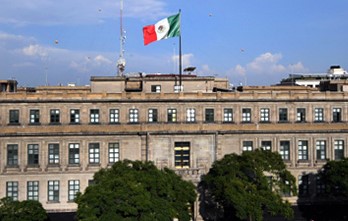Mexico Supreme Court: Electricity Reform Unconstitutional
Resolution fosters legal certainty to participants, investors in energy sector.
BY DAVID JIMÉNEZ, GABRIELA COSIO AND ANDRÉS HERNÁNDEZ
In a momentous decision, the Second Chamber of the Mexican Supreme Court of Justice determined on January 31 that the reform to the Electricity Industry Law of 2021 introduces new rules regarding (i) the order of dispatch of electricity, (ii) the form of awarding electricity coverage contracts, and (iii) the system for the procurement of clean energy certificates, which unduly benefit the state-owned company, Comisión Federal de Electricidad and its affiliates (CFE), to the detriment of private participants in the electricity market, thus, violating the constitutional principles of free and fair competition and sustainable development.
CFE ONE MORE COMPETITOR
The Chamber itself specified that the alleged strengthening of state companies is not a reason to disregard the constitutional framework on electric energy. In accordance with the constitutional principles in force in certain activities, including the generation and commercialization of electricity, CFE is one more competitor in the wholesale electricity market with a corporate, administrative and economic structure that allows it to compete on equal terms with private participants, so the challenged legal reform cannot introduce rules that give CFE a preponderant position and hinder free and fair competition, in addition to discouraging the generation of clean energy.
Despite the fact that this important resolution is limited to an amparo under review filed by several private generators, the Supreme Court decided to extend its application in a general way, because when the disincorporation of the legal reform claimed is materialized, the same consequences must necessarily be generated for the all of the participants in the wholesale electricity market or otherwise the principles of free and fair competition would be violated.
IMPORTANT STEP
Although the impact of this transcendent resolution on the measures taken by the current government that prevent the entry of participants into the electricity market will not be immediately seen, it represents an important step that fosters legal certainty to all participants and investors in the energy sector in Mexico.
Finally, the effects that this resolution will have on the electric companies’ position that in recent months have initiated investment arbitrations against the Mexican State and on the State-to-State arbitration initiated by the Government of the United States of America (to which Canada adhered) within the framework of the free trade and investment agreement among the United States, Mexico and Canada (USMCA) should be evaluated.
David Jiménez leads Garrigues’ energy and infrastructure practice in Mexico. Gabriela Cosío is principal associate and Andrés Hernández associate at the firm’s Energy and Infrastructure Arbitration practice in Mexico.
This article is based on an overview by Garrigues. Republished with permission from Garrigues.













